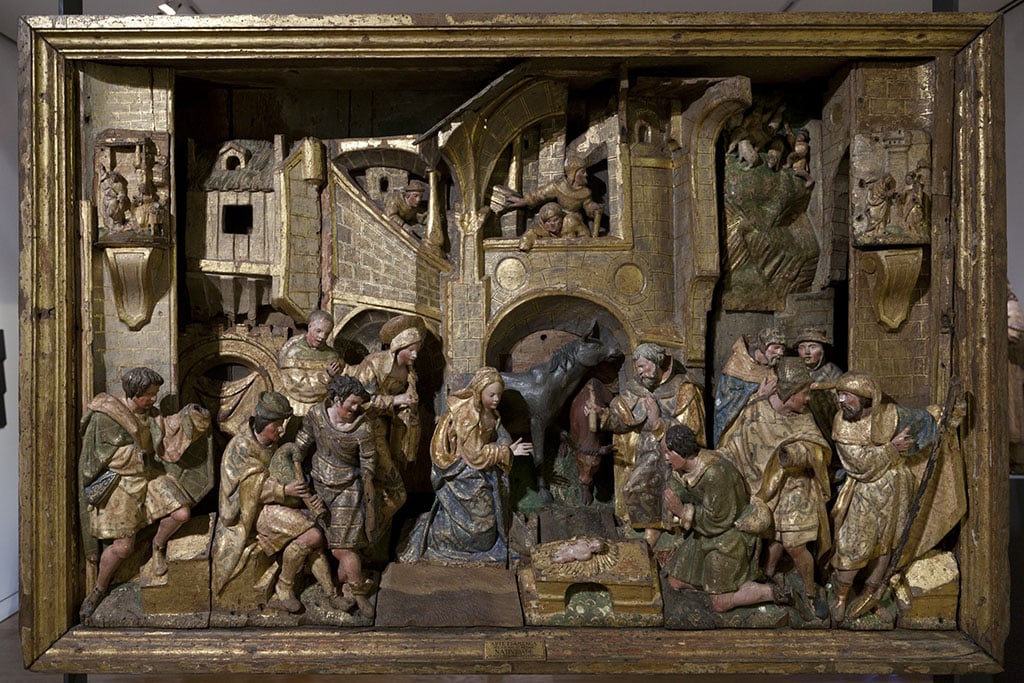If you are intolerant of reindeer with red noses and bells that jingle instead of pealing, try listening in the morning to the soaring majesty of Marcos Portugal’s Matinas do Natal.
The work was first performed on the Eve of Christmas in the Chapel Royal of Rio de Janeiro in the year 1811. The composer had arrived at the behest of the exiled Prince Regent (later king João VI) to become the Master of the Royal Chamber Music.
Marco Portogallo (to use his internationally famous name) was born in Lisbon where 13 of his operas were performed at the São Carlos Royal Theatre and dramatically religious works at the Patriarchal Holy Church where he had been appointed as organist. His secular music was influenced by his lengthy stays in Italy where his comic operas were particularly popular and performed in French, Russian and German.
The Matinas may be a re-arrangement of several compositions which he wrote in 1806 for performance at the great basilica of Mafra where the Prince Regent was often in residence at the adjoining Royal Palace and whose family shared his interest in sacred music required for regal festivities, occasions of State and, of course, worship.
What Marcos Portugal achieved was a wonderful combination of sanctity with the joyful celebration of the birth of the Christ child. The work consists of eight responsories and a final Te Deum and lasts about 90 minutes with much variation of tempo and the introduction of rhythms from folk-dance and interaction between soloists, choir and an orchestra without violins. It has been recorded by the Ensemble Turicum as two CDs (209.108 Paraty).
By way of interesting musical comparison, try listening to the Te Deum composed in 1820 by King Pedro I of Brazil (Naxos 8.574404) and performed under the direction of Marcos Portugal in the Royal Chapel to celebrate the baptism of his eldest son, Prince João Carlos, on March 27, 1821.

The magnificent Christmas hymn (Hino de Natal) Adeste Fideles – O Come, All Ye Faithful – is attributed to another musical monarch, King João IV.
Two manuscripts dated 1640 were found in the Royal Palace at Vila Viçosa where once was housed one of the largest libraries in Europe and a school of music which sent Portuguese musicians to study in Italy and Spain under royal patronage.
Authorship was also claimed by the British hymnist John Francis Wade, but it would seem that his score resulted from the amalgamation of manuscripts from several sources.
For an afternoon of seasonal peace and goodwill, enjoy the four Christmas Songs by Fernando Lopes-Graça, which are included in a Naxos recording (cat. Nº 8.579039). He was arguably the greatest of 20th century Portuguese composers and his assiduous research of traditional songs and dances enabled his writing of two Cantatas de Natal in 1950 and 1961, which total 34 carols covering the 12 days of Christmastide up to the celebration of the Three Kings.
Nº 1 Ó meu menino Jesus (Oh my baby Jesus)
Nº 2 Vinde Pastores (Come ye shepherds)
Nº 3 Estando a Virgem (The Virgin was)
Nº 4 Ó menino tão lindo (Oh my beautiful baby)
For the late evening, listen by candlelight to the mystery and fascination of the 12th century chants of the Knights Templar, which were recorded by the Ensemble Organum (CD: HMO 8905302) after the re-discovery of an ancient manuscript at the Chateau de Chantilly.
Undoubtedly, the Office of Matins at Christmas would have been sung not only at the Holy Sepulchre of Jerusalem but at their magnificent redoubt which existed within the Convento de Tomar.
|| features@portugalresident.com
Roberto Cavaleiro first came to Portugal in 1982, acting as advisor to international investors. Current interests include animal welfare and writing opinion articles, especially with reference to environmental issues.




















